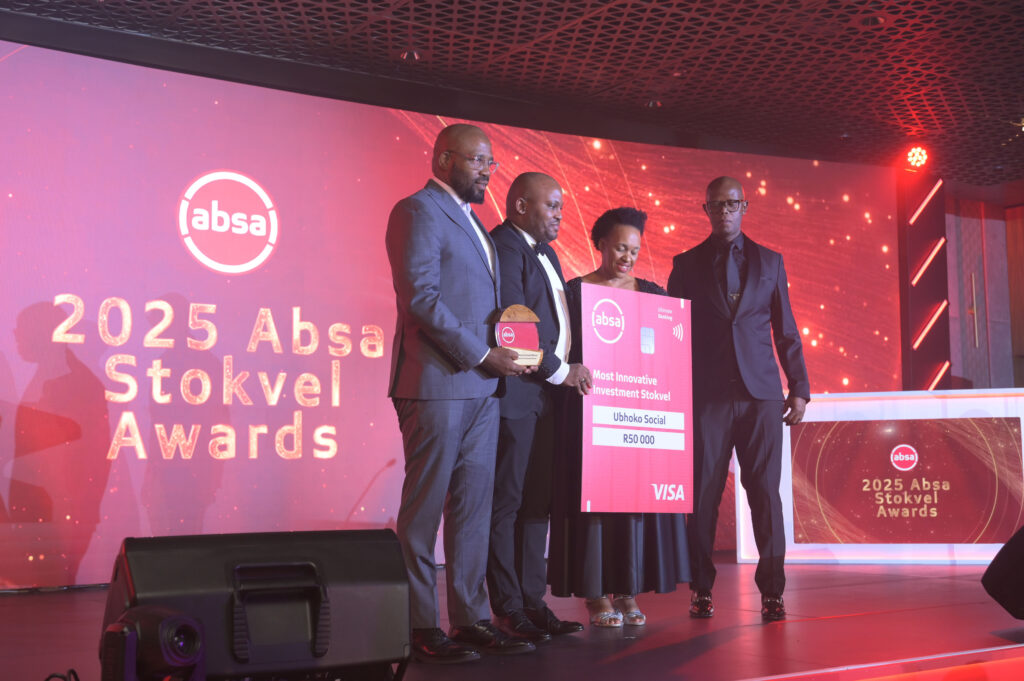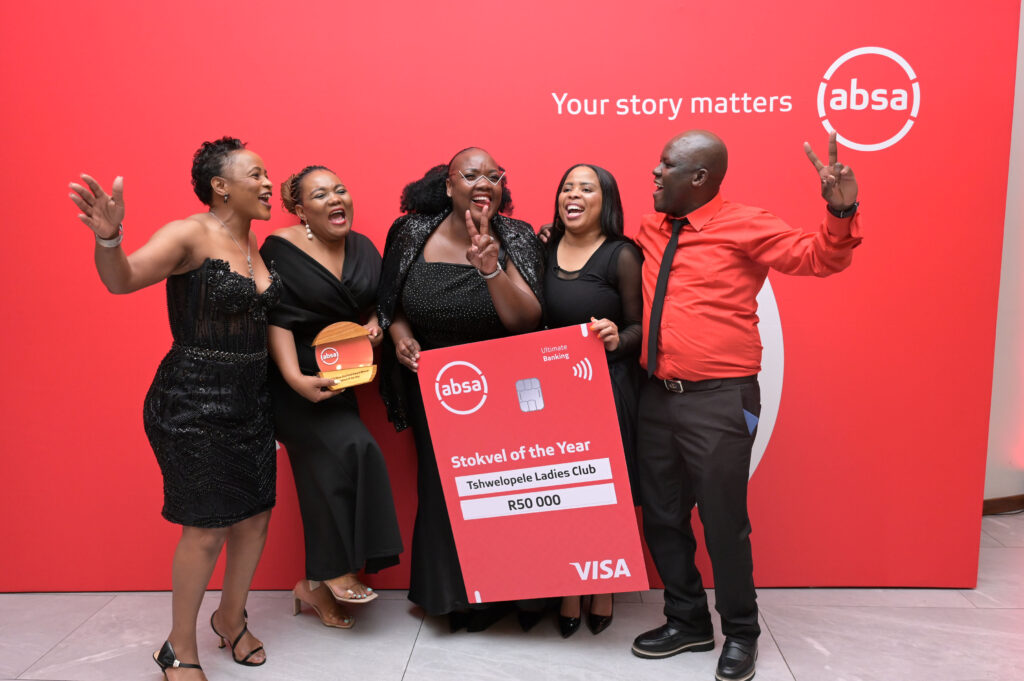Colleague volunteering has matured from a “good-to-have” initiative, into a strategic lever for culture, capability and community impact. By the end of Q3 2025 Absa’s colleague volunteering programme shows that this shift is real: more colleagues are participating, more communities are being reached, and each rand invested is working harder.
Benchmarked against the Chief Executives for Corporate Purpose (CECP) Giving in Numbers 2025[1] benchmark, Absa sits at the leading edge of Colleague volunteering participation and within global ranges on skills-based volunteering. This is a clear signal that the bank’s model is aligned with emerging global practices.
The strategic question now is no longer whether the programme is scaling. It is how to convert that scale into deeper, measurable value. This can be achieved by growing skills-based volunteering, launching paid volunteer leave underpinned by sharpened impact measurement. The Absa Social Impact Awards then also become a catalyst for culture change.
Corporate volunteering has evolved from a discretionary employee benefit into one of the most visible expressions of the “S” of ESG delivery. Leading companies now position structured volunteering as a strategic capability, one that deepens employee engagement, develops leadership behaviours, and creates tangible and measurable value for communities and non-profit organizations (NPO) delivery partners.
Absa’s own Corporate Citizenship agenda reflects this shift. As Group Chief Marketing & Corporate Affairs Officer Sydney Mbhele highlighted at the inaugural Social Impact Awards, “being a force for good is not an act of charity, but an act of leadership.” In this context, colleague volunteering is not a side activity, it is one of the most practical ways in which purpose shows up in the everyday life with an organisation.
CECP’s latest findings reinforce this trajectory. Companies that embed formal volunteer leave, create structured pathways for skills-based volunteering, and invest in clear programme governance, consistently outperform their peers on participation, impact quality, and long-term programme resilience.
Three patterns stand out from the CECP benchmark:
- Corporate participation: CECP’s global benchmarking indicates an average volunteer participation rate of 25%, with smaller organisations and certain industries reaching materially higher levels of engagement. The distribution makes clear that structural enablers including among others, paid volunteer leave and visible executive sponsorship are decisive in shifting volunteering from a good-to-have activity to an embedded cultural practice.
- Skills-based volunteering (SBV): CECP defines skills-based volunteering as activities where employees deploy their professional expertise from mentoring, financial literacy and digital skills support. While the report does not quantify SBV hours, it identifies Pro Bono Service as one of the most prevalent programme types, offered by 66% of surveyed companies, signalling a shift toward deeper, expertise-based models that build partner capability and support employee development. In the South African context, the Trialogue Business in Society Handbook 2025[2] reports a comparable but slightly lower prevalence of 58% reinforcing the growing uptake of skills-aligned volunteering across markets.
- Programme features: paid volunteer leave, matched funding, recognition platforms and dedicated programme management teams are increasingly standard. Where these features are in place, volunteering is more predictable, more inclusive, and easier to sustain at scale.
For Absa, the implication is straightforward: the fundamentals are in place. The opportunity lies in deliberately tilting towards skills-based engagements and embedding the right programme features. These include skills-based volunteering pathways and paid volunteer leave so that the bank’s scale translates into distinctive measurable value.
Absa Q3 2025 YTD snapshot: scale with improving efficiency
The preliminary year-to-date results show a colleague volunteering programme that has both grown and become more efficient. Our results speak for themselves. Participation has climbed to 32.4%, from 20.5% in 2024. Absa now sits at the upper end of the CECP participation range, indicating strong mobilisation and clear leadership signalling.
Hours volunteered have increased to 86,300, up 41% from 61,000 in 2024, reflecting more colleagues choosing to give their time.
Skills-based volunteering accounts for 18% of all hours within CECP norms but below Absa’s own ambition to reach 25 – 30%. This is the critical lever for deepening value.
The number of people reached has almost doubled to 110,000 (from 60,000 in 2024), signalling improved programme efficiency and stronger leverage of partner networks.
In summary, Absa has grown participation and expanded the reach, creating a strong platform from which to pursue more targeted, value-focused impact.
To build on this foundation, three strategic pathways emerge:
- Intentionally expand skills-based volunteering
The most powerful volunteering now happens where colleagues apply their core strengths. For Absa, this means tilting the portfolio towards activities such as financial literacy and money management masterclasses, entrepreneurship coaching labs, as well as youth digital skills immersion sessions through the ReadyToWork programme.
Operationally, this requires a clear SBV pathway: mapping skills, scoping short-term projects with defined outcomes, setting impact expectations with partners, and creating an internal “marketplace” that links colleague capability to social demand.
- Launch Paid Volunteer Leave as a culture-change lever
Paid Volunteer Leave (PVL) is more than an HR benefit. When launched with visible executive participation and manager support, it normalises volunteering as part of how Absa works, not something colleagues fit in after hours.
Early PVL allocations can prioritise high-impact SBV pilots, with stories and results shared widely. This provides compelling proof that time invested in volunteering can simultaneously advance Absa’s purpose, colleague development and partner impact.
- Use the Absa Social Impact Awards as a storytelling engine
The inaugural Absa Social Impact Awards have already showcased the depth of commitment and innovation across markets. Framed strategically, the awards can become the primary storytelling platform for colleague volunteering – spotlighting skills-based projects, partner outcomes and colleague learning journeys, as well as positioning volunteering as a powerful component of Absa’s talent and leadership proposition.
Case studies drawn from award finalists and winners can then be repurposed to recruit new volunteers, brief senior leaders, and support Absa’s external positioning as a purpose-led pan-African bank.
Colleague volunteering is an investment in people, the communities they serve and institutional capability. Absa’s challenge and opportunity is to translate its growing scale into sustained value: for partners, for the communities it serves, as well as for the colleagues who want their work to matter. Done well, the volunteering programme becomes more than a corporate citizenship initiative. Colleague volunteering becomes a core mechanism for talent development, building brand trust and long-term, systemic social impact.
[1] https://mycecp.cecp.co/s/article/Giving-in-Numbers-2025-Edition
[2] https://trialogue.co.za/businessinsocietyhandbook/
.png)
.png)
.png)
.png)
.png)
.png)
.png)

.png)
.png)









